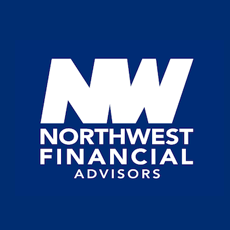Forget the Scale — Resolve to Boost Your Retirement Savings in the New Year
By Nikki Young, CFP®
Northwest Financial Advisors
Many of us vow to lose weight and get in better physical shape in the new year. And unfortunately, many of us fail. Instead of spending money on an expensive gym membership or fancy workout gear, consider putting that money toward your retirement nest egg next year.
Increasing your retirement savings may not be as hard as you think. And it sure beats dieting! Here are some tips to help you get started — or restarted — on your retirement savings.
-
If your employer offers a retirement savings plan, such as a 401(k) or TSP, take advantage of it! Individuals can contribute up to $23,000 in 2024, but contributing even a small amount over time can help boost your nest egg.
-
If your employer plan includes matching contributions, contribute as much as required to receive the match. Otherwise, you’re missing out on “free money.” Sometimes matching funds are subject to vesting. Find out how long you need to stay with your employer to receive all or most of your employer’s matching funds.
-
If you receive a raise and are financially stable on your current salary, consider adding the extra income to your retirement savings. For example, if you receive a 3 percent salary increase, increase your retirement contributions by 3 percent.
-
If you lost income during the pandemic and stopped your retirement plan contributions, is your income now sufficient to restart them? This is especially important if retiring is not too far away.
-
If you don’t have access to an employer-sponsored retirement plan, you can save for retirement through an Individual Retirement Account (IRA). If you’re self-employed, you can open a Simplified Employee Pension (SEP) IRA and save up to 25 percent of your net earnings annually.
A qualified financial advisor can help you determine the appropriate retirement savings strategy for your unique situation. If you need assistance getting your retirement plan into shape, I welcome you to email me at nyoung@nwfllc.com or visit my website to request a complimentary in-person or virtual consultation.
The opinions in this article are for general information only and are not intended to provide specific advice or recommendations for any individual. To determine which strategies or investments may be suitable for you, consult a qualified professional prior to making a decision.




